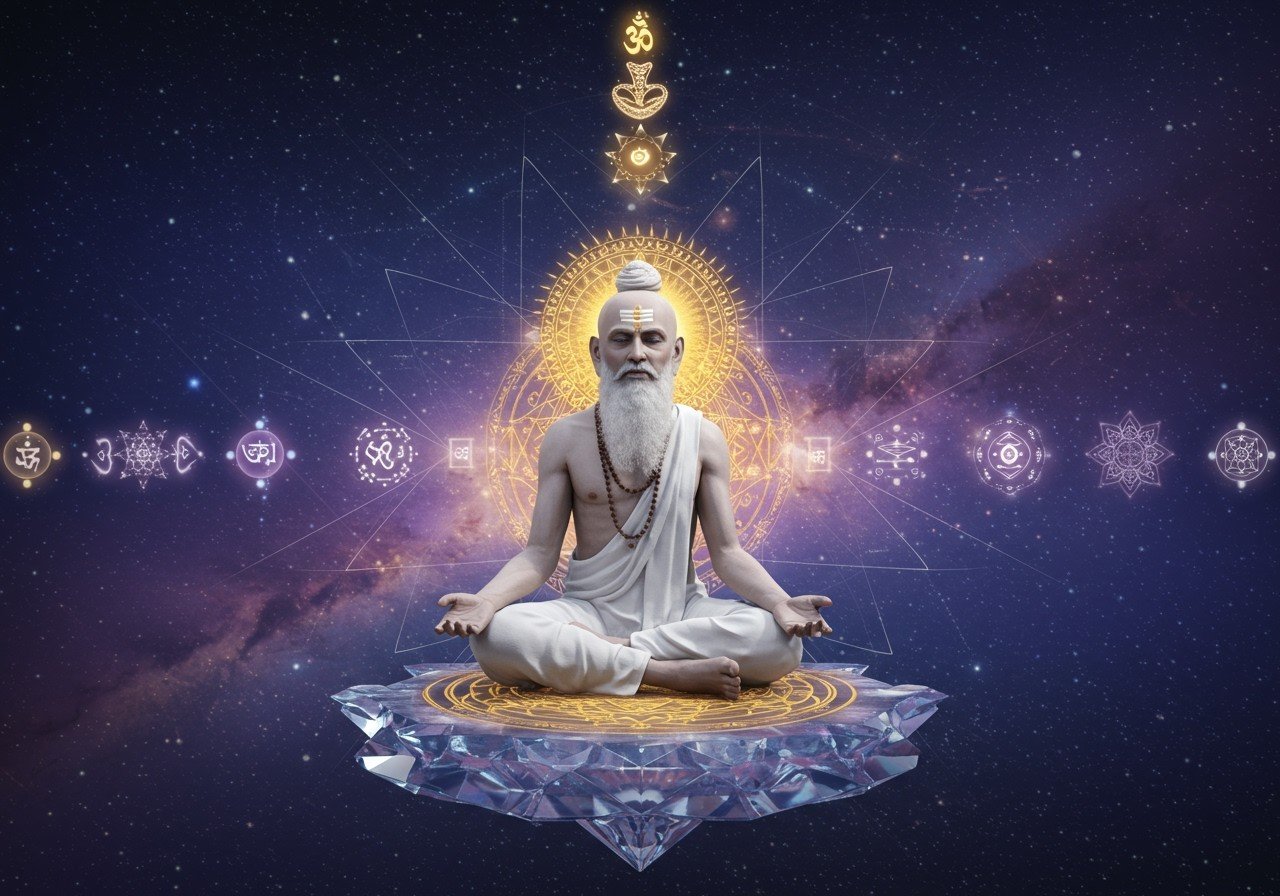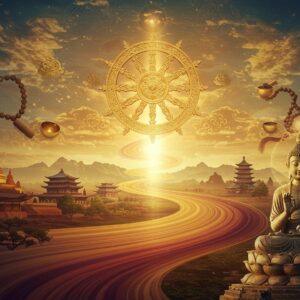
Vedanta, meaning “the end of the Vedas,” is one of the world’s oldest spiritual philosophies. Originating from the Vedas, India’s sacred scriptures, it’s a major school of Hindu philosophy and a branch of Astika (orthodox) traditions. The Upanishads, foundational Hindu texts, form the core of Vedanta, exploring profound concepts about reality and human salvation. In today’s world, Vedanta provides valuable insights for those seeking spiritual understanding and a deeper connection with their inner selves, offering guidance amidst modern challenges.
Vedanta is not just a philosophical system; it is a way of life that emphasizes self-realization and the interconnectedness of all beings. This philosophy explores the nature of reality, the self, and the ultimate goal of existence, helping individuals navigate their spiritual journey with wisdom and clarity.
Core Concepts of Vedanta
Several key concepts are central to Vedanta. These concepts provide a framework for understanding the philosophy’s depth and significance.
- Brahman: This is the ultimate reality, the infinite existence, consciousness, and bliss, serving as the foundation of all creation.
- Brahman is the source and sustainer of everything, both material and immaterial.
- Atman: The individual soul or self, eternal and residing within us as the divine self. Atman remains pure and untouched by worldly changes.
- This concept emphasizes the inherent divinity within each individual.
- Maya: Often translated as “illusion,” Maya represents the veil of ignorance obscuring our true understanding of reality as non-separate from Brahman. Maya affects how we perceive the world and ourselves.
- It leads to the misconception of separateness between the individual self and the ultimate reality.
- Moksha: The ultimate goal in Vedanta, liberation from the cycle of birth and death (samsara). Achieving Moksha involves realizing one’s true nature and uniting with Brahman.
- This liberation represents freedom from suffering and the limitations of the material world.
These interconnected concepts form the basis of Vedantic thought, offering a path toward self-discovery and spiritual enlightenment.
Schools of Vedanta Thought
Vedanta has given rise to various schools of thought, each with its own interpretation of core concepts. These schools have enriched the philosophical landscape of Vedanta, providing different perspectives on the path to liberation.
- Advaita Vedanta: Founded by Gaudapada and developed by Adi Shankara, this school emphasizes non-dualism, the oneness of Atman and Brahman. It suggests that liberation is possible in this lifetime.
- Advaita Vedanta asserts that the individual self is ultimately identical to the ultimate reality.
- Vishishtadvaita Vedanta: Established by Ramanuja, this school proposes qualified non-dualism. While Brahman is the sole reality, individual souls are distinct aspects of it.
- This school reconciles the oneness of Brahman with the individual existence of souls.
- Dvaita Vedanta: Founded by Madhva Acharya, this school maintains a dualistic perspective, asserting the eternal separation of Atman and Brahman.
- Dvaita Vedanta emphasizes the devotion and surrender to a personal God.
Explore resources on poojn.in to delve deeper into these Vedanta schools and their unique perspectives. Check out this blog post about Hindu Philosophy.
Vedanta’s Relevance Today
Vedanta remains remarkably relevant in the contemporary world. Its teachings offer valuable insights into self-awareness, inner peace, and the interconnectedness of all life, resonating with those seeking meaning and purpose in a fast-paced world. These timeless concepts provide a framework for navigating modern challenges and cultivating a deeper understanding of oneself and the universe. Vedanta’s principles offer practical guidance for ethical decision-making, fostering harmonious relationships, and living a life of purpose.
You can find items for your spiritual journey at poojn.in. Discover our prayer beads and worship items.
Embracing Vedanta in Daily Life
Integrating Vedanta into daily life can be transformative. It encourages mindfulness, self-reflection, and living in accordance with dharma and karma. Practices like meditation, yoga, and contemplative study can further deepen one’s understanding and experience of Vedanta.
Learn more about Hanuman’s journey and Ramayana geography, which are related to the concepts discussed in Vedanta, at Hanuman’s Journey and Ramayana Geography Explained.


